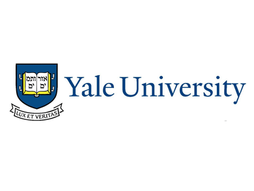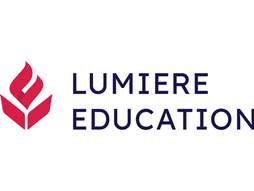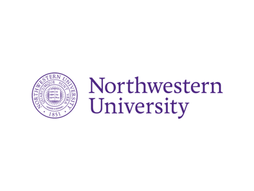Stossel in the Classroom Essay Contest - 10 Tips to Help You Win
One of the best ways to develop your writing and communication skills as a high schooler is by participating in various kinds of writing contests. Winning or even just participating in such competitions allows you to both develop and demonstrate your writing ability, critical thinking, and initiative. Aside from the experience and the awards, it also benefits your college applications by showing admissions officers that you are engaged and proactive in your education. Plus, it can be a fun and rewarding experience that provides valuable feedback and a sense of accomplishment.
If you’re looking for an interesting and valuable writing competition to take part in, then today’s blog on the Stossel in the Classroom Essay Contest is just for you.
What Is the Stossel in the Classroom Essay Contest?
The Stossel in the Classroom Essay Contest is an annual competition designed to engage middle and high school students with current events and public policy. Named after the well-known journalist John Stossel, the contest aims to promote free thought and critical thinking by encouraging research and analysis of critical and complex issues impacting the world, and articulating these views in a comprehensive essay. By participating, you can not only learn valuable research and writing skills, but also gain a deeper understanding of economic and political concepts, which can be useful for your future studies. Plus, winners receive cash prizes and national recognition, which can be a great addition to your resume.
Is it prestigious?
Yes, the Stossel in the Classroom Essay Contest is considered prestigious. Thousands of students from across the United States and even internationally participate each year. The competition is intense, and the topics require a deep understanding and thoughtful analysis. The contest is pretty selective, and being a finalist or winner can set you apart in college applications. More importantly, it teaches you to think and communicate at an advanced level, a valuable life skill that will stand you in good stead regardless of what career or education you choose to pursue.
Who is eligible to participate?
The contest is open to middle and high school students residing in North America, Hawaii or at a US military address. You simply need to be in grades 5-12 and between 13 and 18 years old. Participation is free of charge.
How is the competition structured?
The Stossel in the Classroom Essay Contest is structured around four specific prompt categories, each addressing a significant topic in current events, economics, or public policy. Once the contest opens in mid September, you have until March 22 to submit an essay of 500-1000 words on the prompt of your choice. Here’s a detailed look at each of the prompts for 2024:
The Housing Shortage: Causes, Solutions, and the Role of Government - This category invites you to explore the complex issue of the housing shortage. Any essay you submit here should address the underlying causes of the housing crisis, including economic factors, zoning laws, and other regulatory constraints. You are expected to analyze potential solutions, such as deregulation, increased housing supply, and innovative building technologies. You should also discuss the role of the government in both contributing to and resolving the housing shortage. Consider examining case studies of cities or countries that have successfully tackled similar issues, and provide a balanced view of the potential benefits and drawbacks of different approaches.
My Vision for 2024: Presidential Campaign Priorities - In this prompt, you are asked to envision the key priorities for the upcoming presidential campaign in 2024. Essays should outline what you believe should be the main focuses of the candidates, such as economic policies, healthcare reform, climate change, education, and national security. Your essay should present a well-argued case for why these issues are critical, supported by current data and trends. You are encouraged to provide specific policy recommendations and explain how these priorities could address the nation’s most pressing challenges. This category requires a forward-thinking approach and an understanding of the political landscape.
Ticket Dynamics: Unveiling the Economics of Concert Tours - This category explores the economic intricacies behind concert tours. Your essay will need to explore the various factors that influence ticket pricing, such as supply and demand, production costs, and market competition. You are expected to analyze the financial dynamics that artists and promoters face, including revenue streams from ticket sales, merchandise, and sponsorships. You should also discuss the impact of secondary ticket markets and scalping on concert economics. Consider highlighting examples of successful tours and what made them economically viable, as well as the challenges smaller artists might face in the industry.
The Path Forward: Evaluating U.S. Energy Policy - This prompt challenges you to evaluate current U.S. energy policies and propose a path forward. Your submission will need to look at each of the various energy sources, including fossil fuels, nuclear power, and renewable energy, and their respective roles in the country’s energy strategy. You’ll then need to analyze the environmental, economic, and geopolitical implications of different energy policies. You are encouraged to explore the potential of emerging technologies and the importance of energy independence. Providing a comprehensive evaluation of current policies and offering realistic, evidence-based recommendations for the future is key to this category.
Essays will be judged on:
Relevance.
Clarity and coherence of arguments.
Depth of analysis.
Originality.
Grammar and style.
Each submission goes through four rounds of judging, each using these criteria by different judges, to ensure a fair and rigorous evaluation process.
What are the prizes on offer?
For the high school division, the prizes available are as follows:
First place - $2,500
Second place - $1,000
Third place - $500
5 finalists - $200 each
10 semi-finalists - $100 each
25 honorable mentions - $50 each
10 tips to help you win
Understand the prompt before deciding: Make sure you fully understand what the prompt is asking. Read it several times and take notes on key points. Contrast it with your own experience, understanding, interest, and access to resources before finalizing on it. The more exposure and interest you have for the topic, the richer your output is likely to be.
Use SITC’s vast resource library: From SITC’s video library to their Both Sides of the Issue section, they have a huge amount of resources that can thoroughly equip you to understand and write on any of the given prompts. Be sure to take advantage of these easily available resources, and try to complement them with more research.
Do even more research: For your final essay, you’re going to need credible sources to back up your arguments. Avoid using only one source - diversify your research to present a well-rounded essay. While SITC has comprehensively structured modules to get you started, try to also refer to government records, public data and research papers.
Create an outline: Plan your essay structure before you start writing. An outline helps you organize your thoughts and ensures a logical flow of ideas. It also helps you pre-empt and avoid any logical pitfalls.
Be original: If you want to win, you’ll need to stand out by presenting unique viewpoints or new angles on the topic. Originality is key to catching the judges' attention. While this is easier said than done, the more you research, the larger the pool of ideas you’ll have access to when trying to come up with your own solutions.
Refer to past winners’ work: Look at past winning essays to understand what made them successful. Note their structure, argumentation, and style. While you won’t need to incorporate them as is, they’ll still give you an idea of what the judges are looking for in a winning entry.
Write clearly and concisely: Avoid long-winded sentences. Be clear and to the point. Make sure every sentence adds value to your essay. A 1000 word limit may seem like a lot, but it’s easy to cross it when discussing a complex topic in detail. You’ll need to work hard at trimming the fat while keeping the meat of your argument.
Edit and proofread: Don’t submit your first draft. Don’t even submit the second or third. Edit multiple times and proofread for grammar and spelling errors. Consider asking a teacher or friend to review your essay.
Practice critical thinking: Don’t just present facts; analyze and critique them. Demonstrate your ability to think critically about the topic. Try to take the reader on a journey, argument by argument, leading up to the inevitability of your conclusion.
Follow the guidelines: Strictly adhere to the contest guidelines regarding word count, formatting, and submission procedures.
By following these tips and putting in the effort, you can enhance your chances of winning the Stossel in the Classroom Essay Contest. Good luck!
Lumiere Research Scholar Program
If you’re interested in conducting and presenting in-depth research on various topics in literature or beyond, you could also consider applying to one of the Lumiere Research Scholar Programs, selective online high school programs for students I founded with researchers at Harvard and Oxford. Last year, we had over 4000 students apply for 500 spots in the program! You can find the application form here.
Stephen is one of the founders of Lumiere and a Harvard College graduate. He founded Lumiere as a PhD student at Harvard Business School. Lumiere is a selective research program where students work 1-1 with a research mentor to develop an independent research paper.
Image Source: Stossel in the Classroom Essay Contest 2023









